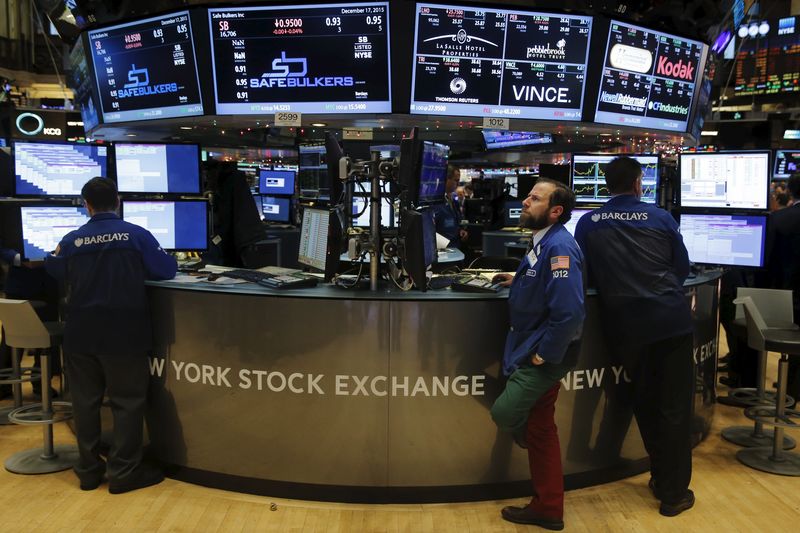This post was originally published on this site
https://i-invdn-com.akamaized.net/news/LYNXMPEBBH10O_M.jpg
Investing.com – The Dow moved off session lows Tuesday, but weakness in energy and financials weighed on investor sentiment amid concerns over an increase in coronavirus cases.
The Dow Jones Industrial Average fell 0.18%, or 48 points. The S&P 500 was down 0.13%, while the Nasdaq Composite added 0.02%.
The energy sector felt pressure from a fall in prices as concerns over oil demand resurfaced amid signs the spread of Covid-19 is picking up pace around the country, including in previous hotspots such as New York.
New York Governor Andrew Cuomo said his state is seeing an uptick in its Covid-19 positivity rate. While New York City’s Mayor Bill de Blasio said Tuesday the positive Covid-19 test rate topped 3% “for the first time in months.”
Financials, mostly banks, which had led the broader market’s strong opening this week, gave up gains from a day earlier as investors assess the degree to which rising virus cases will affect the economic recovery.
Morgan Stanley (NYSE:MS), Citigroup (NYSE:C) and Bank of America (NYSE:BAC) fell more than 1%.
Airlines were also among the biggest losers of the day so far, amid growing doubt that Congress will reach an agreement on the proposed $2.4 trillion stimulus package that includes unemployment benefits, direct payments to households and small business loans, as well as aid for airlines.
United Airlines (NASDAQ:UAL) and American Airlines (NASDAQ:AAL) sank more than 3%, while Delta Air Lines (NYSE:DAL), slipped 2%.
Tech, including Apple (NASDAQ:AAPL) and Microsoft (NASDAQ:MSFT) Alphabet (NASDAQ:GOOGL) Amazon.com (NASDAQ:AMZN) and Facebook (NASDAQ:FB), which together make up a quarter weighting of the S&P 500, traded mixed.
On the economic front, data showed the consumer remained resilient last month even as the unemployment checks included in the previous coronavirus aid packaged had ended.
The consumer confidence index rose to 101.8 in September from 84.8 in August, topping consensus for a reading of 90.
“An increase in confidence this month was expected […] but the magnitude of the increase is a surprise, Jefferies (NYSE:JEF) said in a note. “Whether because of President Trump’s executive action to reinstate part of those benefits or because of the fundamental strength of the recovery, consumer attitudes improved sharply this month.


